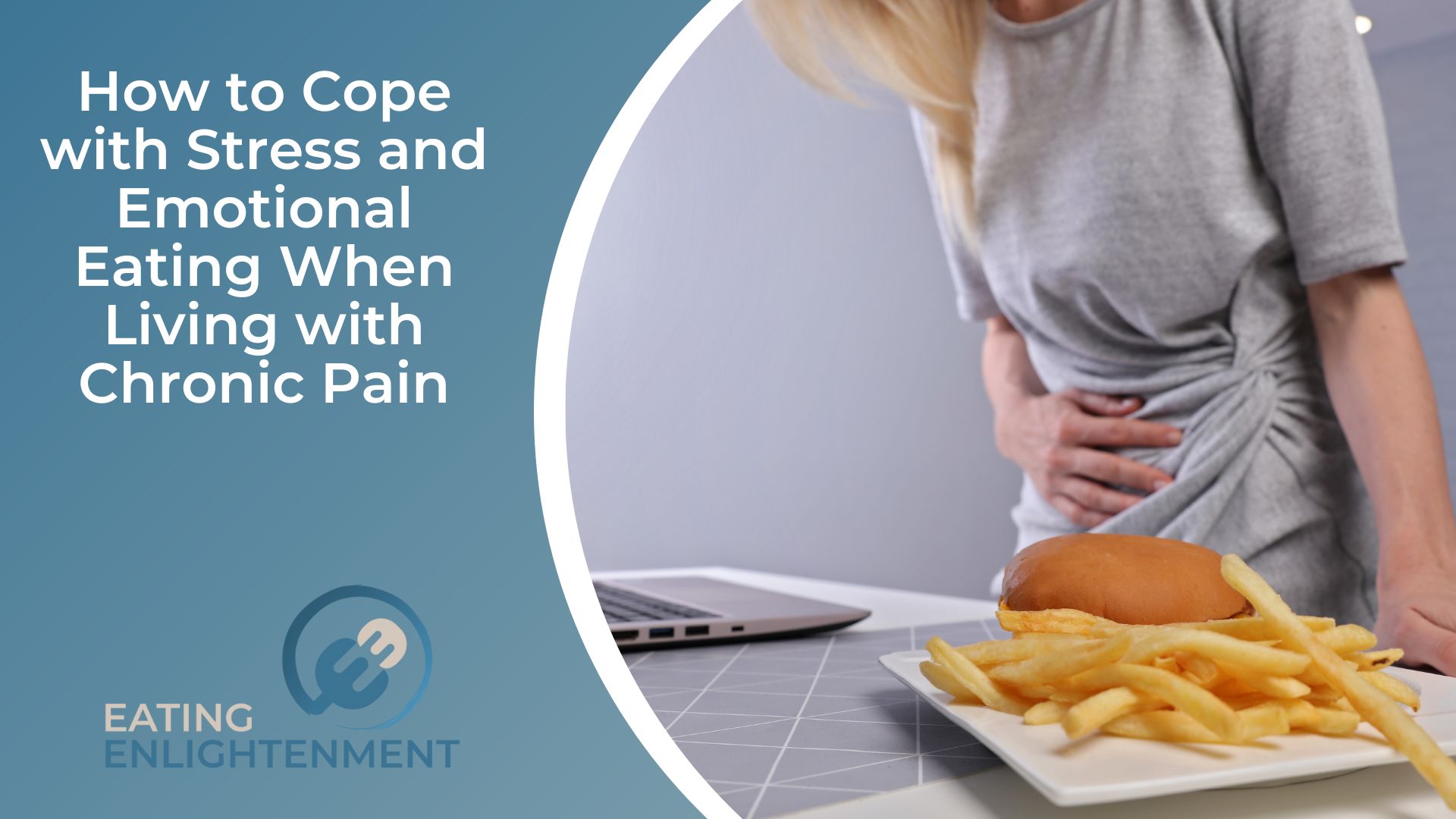It is not easy to live a life with chronic pain. The constant pain can affect the physical, mental, and emotional state of a person. Stress levels can increase, ultimately leading to emotional eating as a coping mechanism. While the pain may seem endless, there are several ways to cope with it.
In this blog, we will help you with chronic management as we explore the relationship between chronic pain, stress, and emotional eating.

Understanding Chronic Pain, Stress, and Emotional Eating
Chronic pain can trigger stress and emotional eating in various ways. The constant presence of pain triggers the body’s stress response system. It can create a chronic state of alertness that leads to stress. Chronic pain can lead to disturbances in daily activities.
The pain makes it challenging to perform effortless tasks. This disruption to daily life can contribute to a sense of loss, further elevating emotional distress. Similarly, it can interfere with sleep patterns, causing difficulties falling asleep or staying asleep. Fatigue and inadequate sleep create a cycle of frustration, anxiety, and helplessness.
In response to increased stress levels and emotional distress, emotional eating can emerge. Stress triggers a biological response that often includes cravings for high-calorie and comforting foods. It is a survival mechanism to store energy. Food, often associated with comfort, becomes a way to alleviate the emotional burden temporarily.
Strategies for Stress Reduction in Chronic Management
The way to deal with stress is not to fall into emotional eating. There are several strategies for stress reduction in chronic management. Here, we have listed some of them for you to explore.
- Mindful Meditation: Engage in meditation to promote relaxation and reduce stress. Focusing on breathing and observing thoughts without judgment. It helps to break the chronic cycle of stress associated with pain.
- Progressive Muscle Relaxation: It is a technique to relax muscle groups and release physical tension. It helps to promote a sense of calm. Regular sessions can reduce the overall stress related to chronic pain.
- Deep Breathing Exercises: Practice deep breathing exercises in your daily routines. Deep and slow breaths can relax the body and help manage stress.
- Therapy: Indulging in therapy can help to mitigate negative thought patterns and behaviors. It can reframe perceptions of pain, reduce stress, and improve coping mechanisms.
- Regular Physical Activity: Engage in gentle, regular physical activity tailored to your capabilities. It helps to release endorphins, a natural mood enhancer, which helps to alleviate stress. You can consult with medical professionals to identify suitable activities for chronic pain management.
- Sleep Hygiene: Good sleep is essential for stress reduction and overall health. Practice good sleep hygiene practices. It can be achieved by creating a soothing sleep environment and following bedtime routines.
- Support Groups: Joining a chronic pain support group can provide a safe space to share pain experiences and coping mechanisms. It helps to reduce feelings of isolation while providing emotional support.
- Journaling: Keep a journal to track daily stressors and triggers associated with chronic pain. It helps to identify patterns and develop strategies for stress reduction.
- Lifestyle Choices: Adopt a healthy lifestyle that can contribute to stress reduction. You can maintain a balanced diet and limit your alcohol intake. It will support overall well-being and resilience in the face of chronic pain.
- Art and Music Therapy: Explore creative outlets such as art or music therapy. You can engage in expressive activities as they provide an emotional release. It is a constructive way to cope with stress and enhance mental well-being.
- Professional Guidance: Seek guidance from healthcare professionals for personalized strategies. They can help manage stress during chronic pain management.
Curbing Emotional Eating in Chronic Management

We understand that emotional eating can seem like an easy way to get distracted from pain. But it is unhealthy and can be difficult to get rid of this habit.
Here, we have listed some of the techniques to curb emotional eating in chronic management.
- Mindful Eating: Practice eating by paying full attention to the sensory experience of each bite. Focus on the taste, texture, and smell of the food. It can help to enhance awareness of eating patterns and reduce emotional overeating.
- Emotional Check-In: Before reaching for food, try to identify the emotions triggering the desire to eat. Once identified, explore alternative ways to address those feelings. This way, you will not always resort to emotional eating.
- Create a Food Diary: Keep a food diary to track eating habits and emotional triggers. This self-awareness can help identify patterns of emotional eating. It will assist in developing strategies to curb the behavior.
- Pause Before Eating: Try pausing before eating to assess if the hunger is physical or emotionally driven. You can practice deep breathing in the meantime to reflect and reduce impulsive, emotional eating.
- Opt for Healthy Snacks: Stock up nutritious snacks to redirect emotional eating towards healthy choices. It promotes healthy food intake and overall well-being.
- Stress-Reduction Techniques: Incorporate meditation or yoga to identify the root causes of stress. It can minimize the emotional triggers leading to unhealthy eating patterns.
- Set Realistic Goals: Create realistic and achievable goals for eating habits. You can make small changes gradually; it can help to build confidence in managing emotional eating over time.
- Meal Planning: Plan what meals and snacks to consume ahead of time to reduce emotional eating. Structured eating can help establish healthier routines.
- Professional Guidance: Seek guidance from healthcare professionals for personalized strategies. They can help manage emotional eating during chronic pain management.
Role of Friends and Family in Chronic Management
When dealing with chronic management, friends and family play a great role. Having a supportive environment can create a safe space to share feelings and reduce emotional burden.
Friends and family who actively listen without judgment can be an asset during such difficult times. Open communication allows one to express emotions and fosters a sense of understanding. This connection can alleviate the need for emotional eating.
Whether it’s going for a walk together or engaging in enjoyable activities, it can strengthen the support system. Friends and family can offer distractions from the constant feeling of pain and stress. There will be no need to seek external coping mechanisms. The simple act of regular check-ins and care can have a profound impact.
Conclusion
While living with chronic pain, coping with stress and emotional eating can be challenging but not impossible. The key to addressing these issues is exploring and experimenting with various strategies.
Chronic pain, stress, and emotional eating are interlinked, so you must have the courage to break this cycle. Each individual is unique, and finding the right combination of strategies can require professional guidance and a supportive environment.
We understand that the feeling of constant pain can be irritating, and implementing various techniques may seem like a hassle. But the journey to chronic management only starts if you are willing to take action against the pain.



